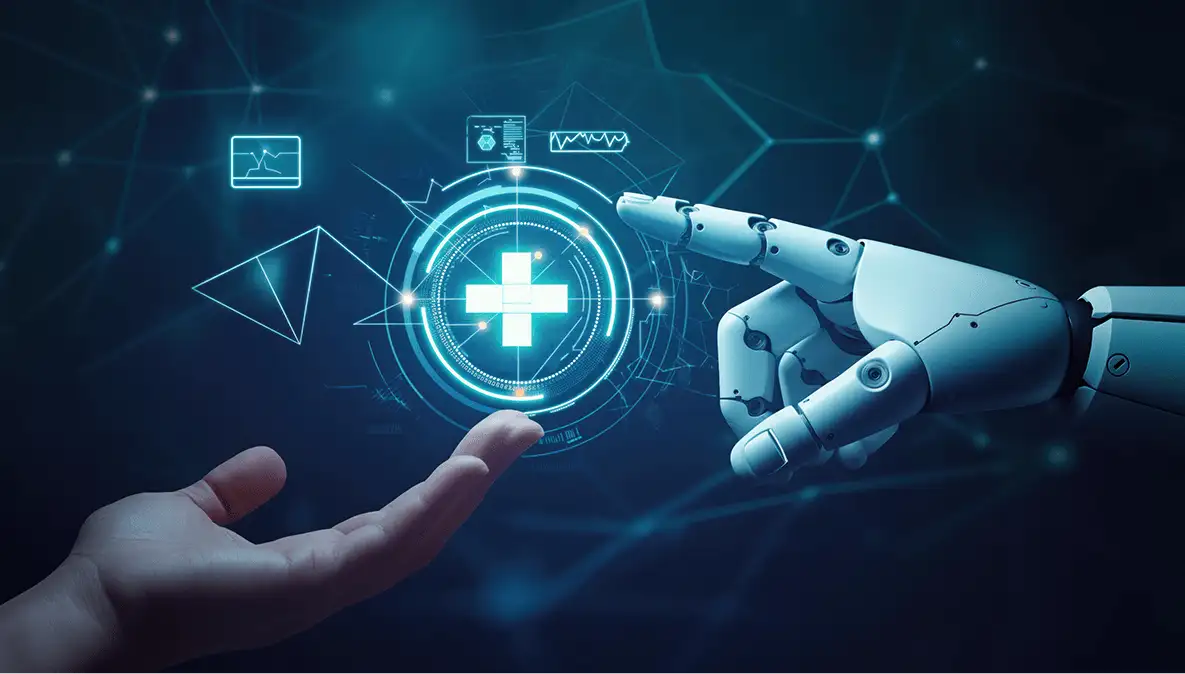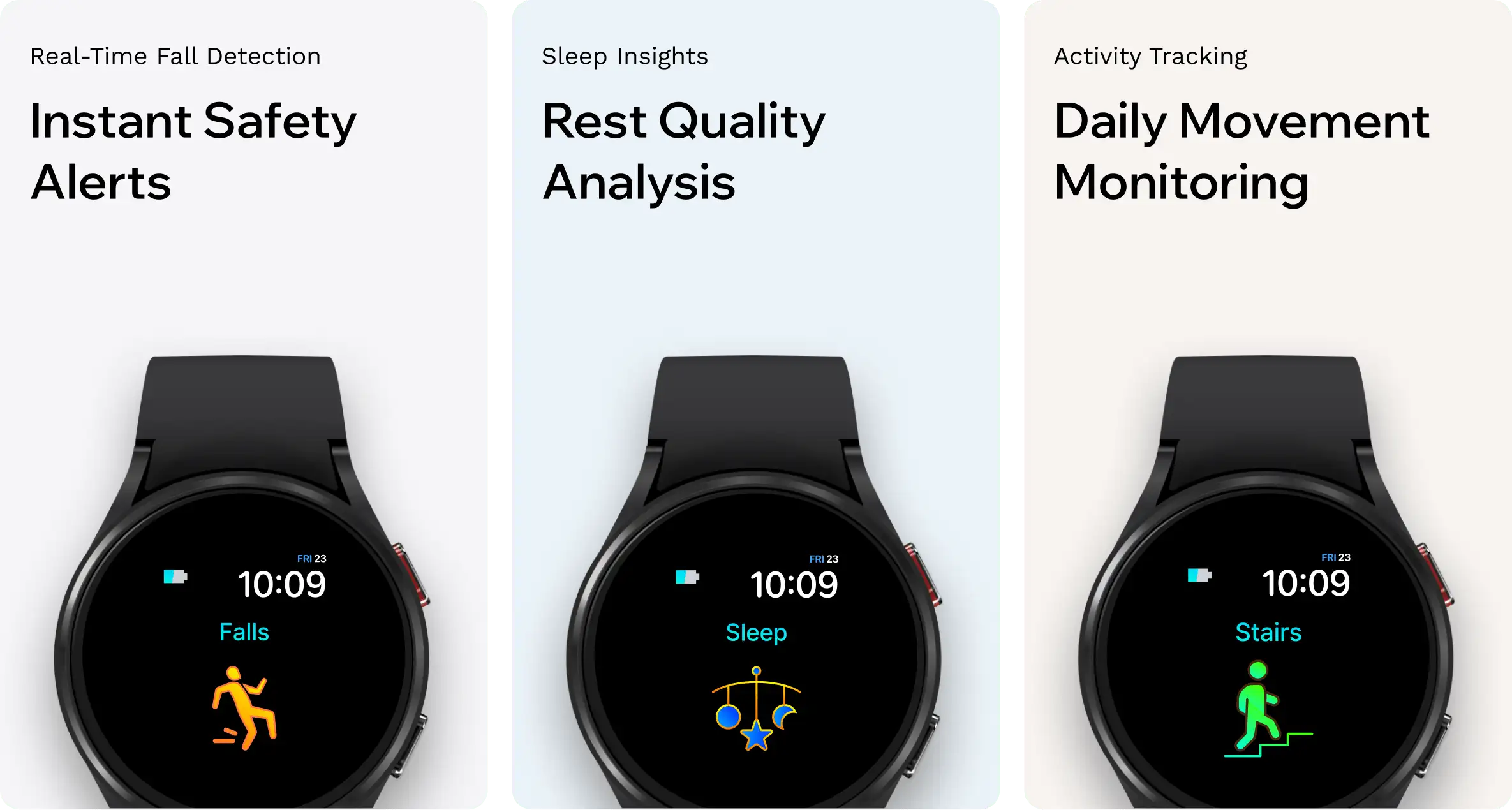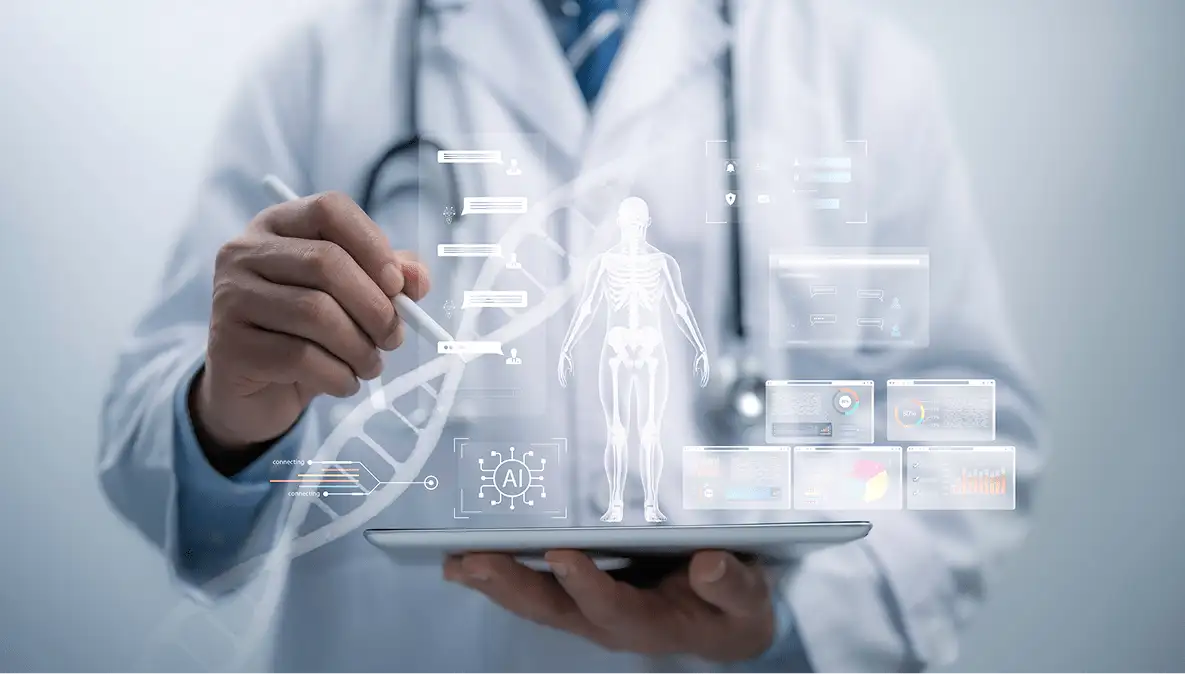What’s Covered
Let’s start by exploring what makes AI-powered health monitoring systems more effective than traditional methods.
AI-Powered Monitoring vs Traditional Care Methods
Inside Audracare's Advance Fall Detection Systems Powered by AI Monitoring
Integrating Audracare AI-powered Monitoring into Existing Care Systems
Privacy and Ethical Considerations in AI-powered Monitoring
Potential of AI-powered Monitoring Systems in Care Settings
The Future of Resident Safety: AudraCare’s AI-Powered Monitoring System
AI-powered monitoring is transforming elderly care by enhancing resident safety and reshaping the future of care. This technology provides real-time insights, enabling proactive care and reducing risks. With AI’s role in health monitoring becoming increasingly popular, care homes can improve outcomes, streamline operations, and make a significant difference for both residents and staff. In this article, we explore how AI-powered systems are revolutionizing care home practices and improving overall care quality.
By 2042, it is estimated that 24% of the UK’s population will be aged 65 or older, creating significant challenges for the elderly care sector. The Office for National Statistics highlights this shift, which is driving the need for innovation within care services. As the number of older individuals grows, the sector is under pressure to improve resources, offer more personalized care, and integrate smart care technologies to better support their health and well-being.
The challenges are not all about numbers, it’s about rethinking how we care for older people, ensuring they receive the support they deserve in a way that is sustainable and forward-thinking.
This article will explore how AI tools for care homes, particularly Audracare's innovative AI monitoring platform, can transform the future of resident safety. We'll talk about the capabilities of AI-powered monitoring in care homes with examples on how these technologies not only respond to immediate safety concerns but also anticipate and prevent potential health issues. The integration of AI for health monitoring promises to enhance the personalization of care, allowing for more precise interventions and improved quality of life for residents.
In this article, you will also learn about the ethical implications and practical challenges of implementing predictive analytics in care homes, offering a balanced perspective on these transformative technologies. By addressing key considerations and exploring their real-world impact, we will be providing an extensive overview to help you gain a deeper understanding of how AI-powered monitoring systems are shaping the future of care and safety in residential facilities across the UK.
Contact Sales
Let’s start by exploring what makes AI-powered health monitoring systems more effective than traditional methods.

AI-Powered Monitoring vs Traditional Care Methods
AI-driven monitoring systems offer several advantages over traditional methods in care home management, making them more effective in ensuring resident safety and well-being. Here’s how:
- Proactive and predictive capabilities: AI can analyse patterns in resident behaviour and health data to predict potential issues before they occur. Predictive analytics in care homes allows staff to intervene early and potentially prevent falls, hospitalizations, or other health complications.
- Continuous monitoring: Unlike human staff who may need breaks or have limited attention spans, AI tools for care homes can provide 24/7 monitoring without fatigue. This constant vigilance can detect even minor changes in behaviour or health status that might otherwise go unnoticed.
- Personalized care:Predictive analytics in care homes can analyse individual resident data to create customised care plans, suggesting activities, adapting communication styles, and flagging potential health concerns specific to each resident.
- Improved efficiency: Positive CQC ratings are key to care business success, but traditional monitoring and reporting take time away from care. AI tools for care homes automates tasks like paperwork and medication management, freeing staff to focus on delivering compassionate and hands-on care.
- Data-driven decision making:AI systems can collect and analyse vast amounts of data, providing insights that inform equipment choices, care plans, and interventions. This data-driven approach enhances the effectiveness of care and improves overall quality of service.
- Enhanced fall prevention: Fall detection systems utilises AI to detect tiniest changes in residents’ movement that might indicate a higher risk for falls. Moreover, it sends instant alerts to caregivers, allowing them to implement timely preventative measures.
- Reduced unnecessary interventions:In one pilot study, AI-powered monitoring reduced unnecessary staff checks by 75%, allowing for more efficient use of staff time while maintaining resident safety.
- Staff Oversight A comprehensive AI-powered care home management software can predict staffing needs by looking at resident data and local events, making it easier to create schedules and provide the right care. It also tracks carer performance to help managers improve efficiency and care quality.
Inside Audracare's Advance Fall Detection Systems Powered by AI Monitoring

Implementing AI for health monitoring in care homes has proved to be a big step forward in keeping residents safe and healthy. Using smart care technology, Audracare provides a complete solution that goes beyond traditional monitoring.
Here are some of the best AI solutions for care homes provided by Audracare:
Advanced Fall Detection Systems for Care Homes
Falls are one of the major safety concerns in the elderly care homes. Traditional solutions like built-in smartwatch detection often fall short with false positives and missed triggers. Audracare’s advanced fall detection system addresses these limitations, offering a solution designed specifically for care homes in the UK . This is how it works:
- Our fall alert systems use sensors with smart care technology and real-life data collected from a wide range of activities such as walking, sitting and falling. This ensures the model is finely tuned to understand the unique movement patterns of elderly individuals, ensuring reliable and accurate detection.
- The machine learning model in Audracare’s fall detection system utilises a neural network trained on high-quality data to detect falls with precision and minimize false alerts.
- Optimized for running on mobile devices and other edge devices, the app integrates seamlessly with smartwatches, providing continuous movement monitoring. If a fall is detected, caregivers receive instant alerts resulting in quicker response and better support.
Comprehensive Health Monitoring
Beyond fall detection, Audracare's AI care solutions also have smart tools to identify health issues early. Here’s how it works:
- The smart care features in AudraFit, enables your smartwatch to continuously track vital health metrics, including heart rate, sleep patterns, and daily movement monitoring.
- By using AI predictive analytics to analyse this data, care homes can spot problems that might show early signs of health issues, allowing for quick action.
Personalized Care Through AI
Audracare's care home management system takes resident safety with AI monitoring to the next level by offering personalized care solutions like:
- The AI tool that learns each resident's unique patterns and behaviours, creating a baseline for normal activity.
- An alert system that notifies staff if anything changes from this baseline, helping them quickly check for any health issues or concerns.
Seamless Integration and Real-Time Alerts
Audracare's AI care solutions integrate seamlessly with existing care home management systems. Here’s how it helps:
- Real-time alerts are sent to staff devices, ensuring quick response times to potential falls or accidents.
- The AI-powered monitoring system provides detailed reports and insights, allowing care providers to make data-driven decisions about resident care and safety protocols.
By combining cutting-edge AI technology with a deep understanding of care home needs, Audracare AI care solutions are setting new standards in resident safety and health management. This innovative approach not only enhances the quality of care but also provides peace of mind for residents, families, and care providers.
Contact Sales
Integrating Audracare AI-powered Monitoring into Existing Care Systems
Audracare's AI tools work smoothly with existing care home management software, improving processes without causing disruption. This easy integration is key to its effectiveness and adoption in care homes.

The AI tools for care homes offered by Audracare are built with compatibility in mind. They easily connect with current electronic health record systems, allowing for a smooth flow of information between the AI monitoring and resident health data. This integration enables more comprehensive predictive analytics in care homes, leading to improved resident safety with AI monitoring.
Audracare's smart care technology doesn't require a complete overhaul of existing systems. Instead, it complements and enhances them. For example, the fall detection systems for care homes can be integrated with existing call button systems, providing an additional layer of safety without replacing familiar processes.
The AudraFit smart app, a key component of Audracare AI care solutions, syncs effortlessly with the main care home management system. This allows for real-time health monitoring and alerts to be seamlessly incorporated into daily care routines, enhancing overall resident safety and care quality.
By focusing on seamless integration, Audracare enables care homes to adopt smart care technology without disrupting essential services.
Privacy and Ethical Considerations in AI-powered Monitoring
When implementing AI in care homes, several important ethical considerations must be taken into account:
- Data protection and consent: Care homes must ensure that residents and their families are fully informed about the data being collected and how it's used. It is important to obtain proper consent, especially for residents with cognitive impairments who may not fully understand the implications of AI for health monitoring.
- Privacy and dignity: While AI-powered monitoring enhances resident safety, it shouldn't infringe on personal freedom and dignity. Care providers must consider how constant monitoring might affect residents' sense of privacy and independence.
- Transparency in decision-making:It's essential to maintain transparency in how AI makes recommendations or triggers alerts. Clear protocols should be established for when human judgment should override AI suggestions.
- Fairness and bias:Care home management systems must be designed and implemented with fairness in mind. Regular audits should be conducted to ensure AI tools in your care homes are not discriminating based on age, gender, race, or other factors.
- Cognitive ability and consent:Ethical concerns arise when elderly care home residents may not have the cognitive ability to consent to their data being collected. This is particularly concerning for older generations who may be less familiar with smart care technology.
- Behavioural changes:The constant monitoring by unfamiliar technology may cause residents to alter their behaviour to avoid the monitors, potentially impacting their well-being and quality of life.
- Accuracy and efficiency:Concerns have been raised regarding the levels of accuracy in AI data collection and the overall efficiency of AI-powered monitoring in care settings.
To address these ethical considerations, care homes should regularly review and update their ethical guidelines for AI use and engage in ongoing dialogue with residents, families, and staff about the role of AI-powered monitoring in care.
By carefully acting on these ethical challenges, care homes can harness the benefits of AI-powered monitoring while maintaining trust and respect for residents' rights.
Potential of AI-powered Monitoring Systems in Care Settings

AI for health monitoring is transforming elderly care in the UK, offering smart solutions to the challenges of an aging population. Over half of care home staff support AI and smart devices to improve resident care, with the Care Quality Commission endorsing the use of smart care technology to boost safety and effectiveness.
Audracare is supporting this transformation with its advanced AI-powered resident monitoring system to enhance safety, streamline care, and improve quality of life. Learn firsthand how AI for health monitoring can help you deliver superior care, improve operational efficiency, and stay ahead in the changing landscape of senior care.
Act now to improve your care home with Audracare’s AI care solutions. Book a consultation to explore our AI care home solutions.











